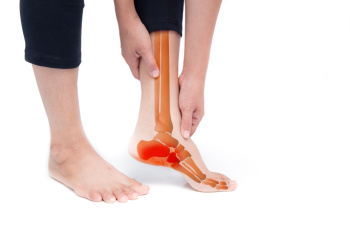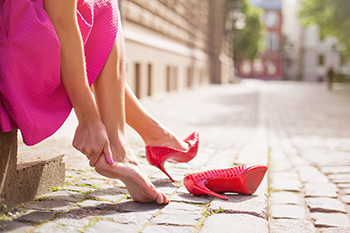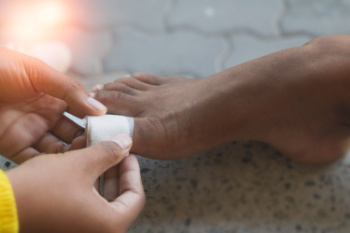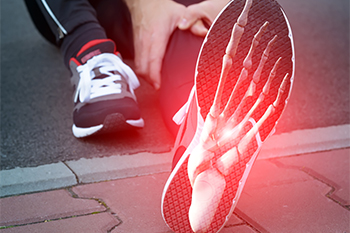
Peripheral neuropathy is a condition that damages the nerves, often in the feet and lower legs. It is common in people with diabetes but can also result from other health issues, such as vitamin deficiencies, chemotherapy, or excessive alcohol use. The damaged nerves can cause numbness, tingling, burning, or sharp pain. Some people lose feeling in their feet, making it hard to notice cuts, blisters, or injuries. Without proper care, these small issues can lead to infections or serious complications. People with peripheral neuropathy may also have trouble with balance and walking because they cannot feel the ground beneath their feet. Daily foot checks, supportive footwear, and regular visits to a podiatrist are important for preventing problems. If you notice unusual sensations or numbness in your feet, it is suggested that you see a podiatrist for a proper diagnosis and appropriate care.
Neuropathy
Neuropathy can be a potentially serious condition, especially if it is left undiagnosed. If you have any concerns that you may be experiencing nerve loss in your feet, consult with one of our podiatrists from Greater Boston Foot Care, PLLC. Our doctors will assess your condition and provide you with quality foot and ankle treatment for neuropathy.
What Is Neuropathy?
Neuropathy is a condition that leads to damage to the nerves in the body. Peripheral neuropathy, or neuropathy that affects your peripheral nervous system, usually occurs in the feet. Neuropathy can be triggered by a number of different causes. Such causes include diabetes, infections, cancers, disorders, and toxic substances.
Symptoms of Neuropathy Include:
- Numbness
- Sensation loss
- Prickling and tingling sensations
- Throbbing, freezing, burning pains
- Muscle weakness
Those with diabetes are at serious risk due to being unable to feel an ulcer on their feet. Diabetics usually also suffer from poor blood circulation. This can lead to the wound not healing, infections occurring, and the limb may have to be amputated.
Treatment
To treat neuropathy in the foot, podiatrists will first diagnose the cause of the neuropathy. Figuring out the underlying cause of the neuropathy will allow the podiatrist to prescribe the best treatment, whether it be caused by diabetes, toxic substance exposure, infection, etc. If the nerve has not died, then it’s possible that sensation may be able to return to the foot.
Pain medication may be issued for pain. Electrical nerve stimulation can be used to stimulate nerves. If the neuropathy is caused from pressure on the nerves, then surgery may be necessary.
If you have any questions, please feel free to contact our office located in Plymouth, MA . We offer the newest diagnostic and treatment technologies for all your foot care needs.




